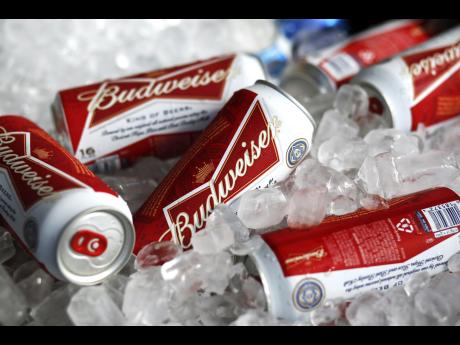Beer merger won’t bring Budweiser, Miller under same roof
The world's two biggest beer makers will join forces to create a company that produces almost a third of the world's beer. But in the United States, the deal will not bring arch rivals Budweiser and Miller under the same roof.
Budweiser maker AB InBev announced Wednesday a final agreement to buy SABMiller for pound71 billion (US$107 billion).
To ease concerns the brewing behemoth might get a stranglehold of the US market, SABMiller will sell its 58 per cent stake in a venture with fellow brewer Molson Coors for US$12 billion. The deal includes rights to the Miller brand name and gives Molson Coors full control of operations.
The combined company which as yet does not have a name will also need to address regulatory issues in China, where SABMiller has a leading position with a 49 per cent stake in the Chinese beer Snow. China is the focus of intense interest, as it already drinks a quarter of the world's beer.
"This combination would create the first truly global brewer," AB InBev CEO Carlos Brito told reporters in a conference call after the deal, which is set to be completed next year.
AB InBev is seeking to bolster growth by acquiring SABMiller's businesses in Africa and Asia as changing tastes and the growth of craft beers cut sales in developed markets.
"The transaction would strengthen AB InBev's position in key emerging regions with strong growth prospects such as Asia, Central and South America, and Africa," AB InBev said in a statement. "These regions have hugely attractive markets and will be critically important to the future success of the Combined Group."
The new company will be listed in Belgium, with secondary listings in Johannesburg, Mexico and New York.
AB InBev and SABMiller had twice extended the deadline for a formal offer after reaching an agreement in principle on October 13. Shares in SABMiller rose 2.8 per cent on Wednesday on relief that the deal was eventually formalised.
The deal gives the new company 29 per cent of the 198 billion litre global beer market and makes it three times bigger than its nearest rival, Heineken, with a mere 9 per cent, said Jeremy Cunnington, the senior alcoholic drinks analyst at Euromonitor International.
To make the deal work, savings will need to be made. AB InBev expects to cut costs by US$1.4 billion.
"AB InBev are second to none in being able to cut costs," Cunnington said. "And they are utterly ruthless."


